Submitted by
Dorte Mandrup Reveals Design For Inuit Heritage Centre Informed By "Patterns Formed In Snowdrifts"
teaser1-1--2--3--4--5--6--7--8--9--10--11--12--13--14--15--16--17--18--19--20--21--22--23--24--25--26--27--28--29--30--31--32--33--34--35--36--37--38--39--40--41--42--43--44--45--46--47--48--49--50-.jpg Architecture News - Jul 12, 2023 - 11:18 2512 views
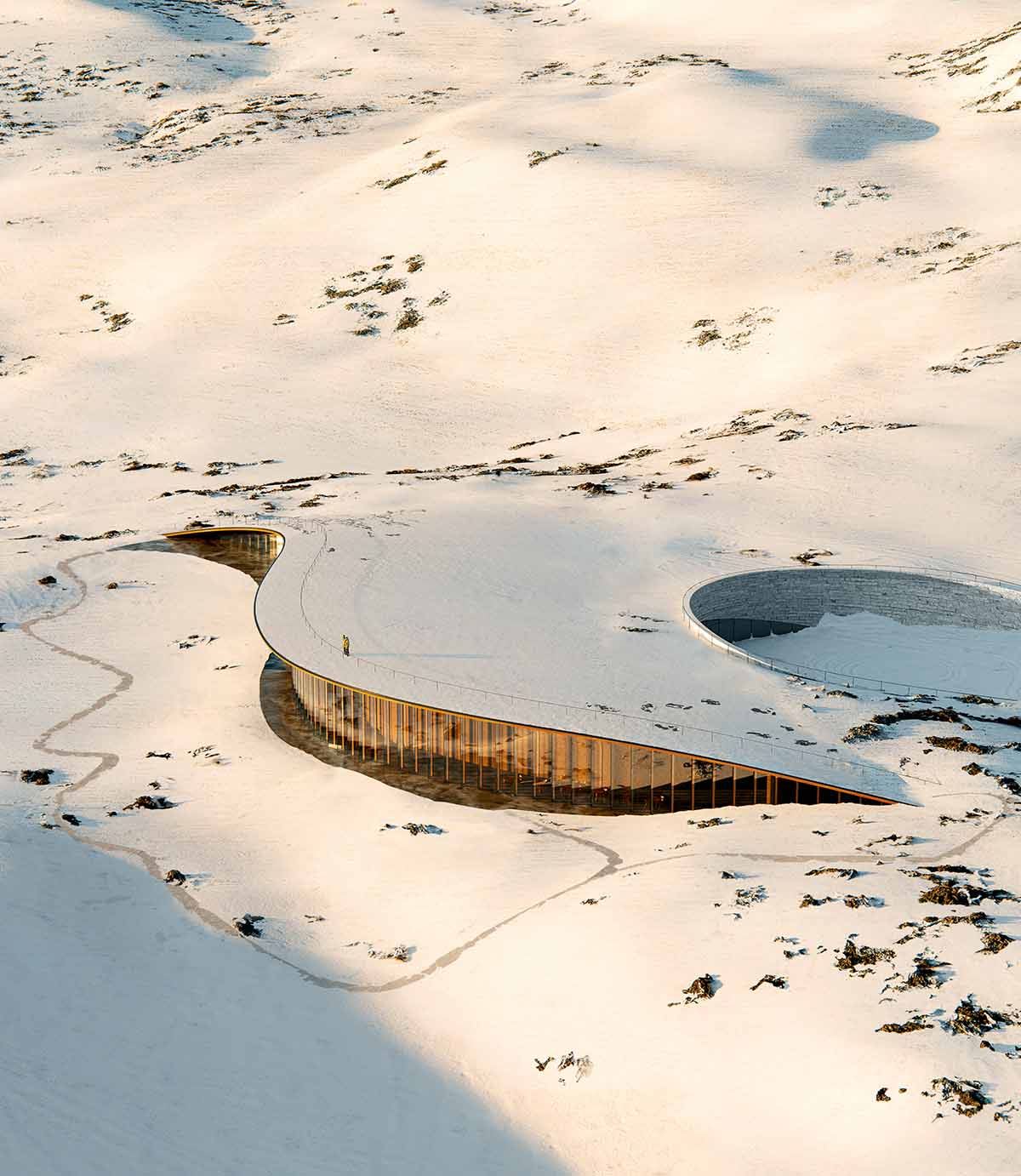
Danish architecture firm Dorte Mandrup has won an intenational competition to design the Nunavut Inuit Heritage Centre (NIHC) in Nunavut, Canada, at the northern edge of the territorial capital Iqaluit.
Mandrup's project, which is partly underground, is informed by the landscape and the movement of the snow and the wind. The building is inspired by "the patterns formed in snowdrifts by the prevailing wind."
Dorte Mandrup has won the competition together with Architect of Record Guy Architects, LEES+Associates, Adjeleian Allen Rubeli, EXP, Pageau Morel, Altus Group, and indigenous consultants Kirt Ejesiak and Alexander Flaherty.
According to the firm, the wind, known as kalutoqaniq - producing sculpted forms like a sand drift - has long served as a natural wayfinding system for Inuit.
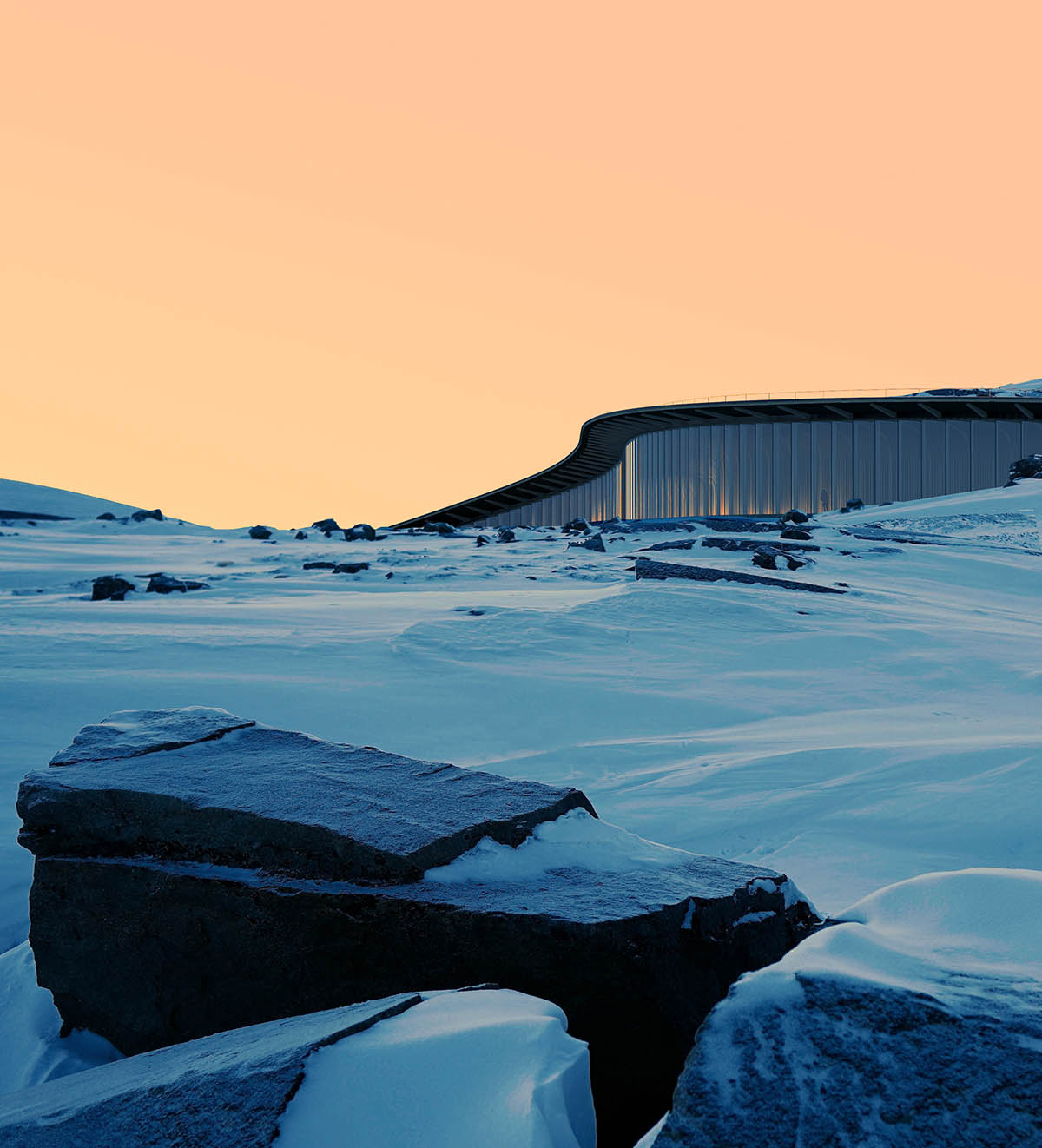
Image courtesy of Dorte Mandrup
The building carves into the rocky hillside overlooking Iqaluit and is drawn by taking the shape of the curves and longitudinal features of the landscape.
Set to be built on a landscape in Iqaluit, the 55,000-square-foot (5,110-square-metre) facility will house café, workshop area, conservations lab, shop, daycare centre, hostel, and offices and connect to a large outdoor area that offer spaces for traditional practices such as carving, kayak building, tool making, and berry picking.
"Once complete, the centre will promote greater awareness of Inuit culture and support cultural healing and reconciliation between Inuit and non-Inuit by offering a place where Inuit can reconnect with their collective past through objects, stories, and activities," said Dorte Mandrup.
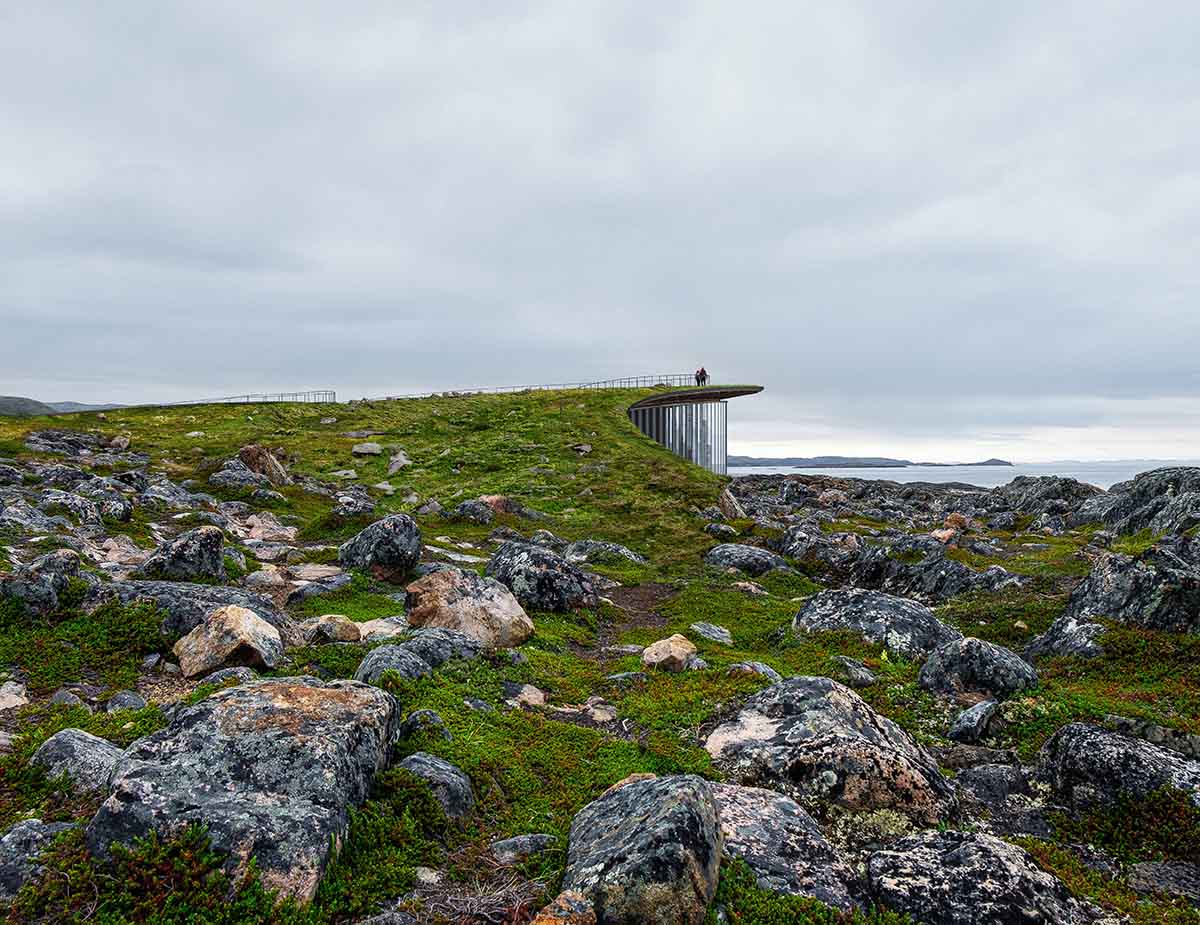
Image © MIR
"The Nunavut Inuit Heritage Centre is an extraordinary project"
"The Nunavut Inuit Heritage Centre is an extraordinary project that we are very proud and humbled to have been selected to be part of. Working within this context requires both extreme sensitivity and consideration of landscape and its cultural significance," said Founder and Creative Director Dorte Mandrup.
"The community has been working tirelessly for a long time to establish a place for Inuit to collect precious heritage and share unique, specialised knowledge that remains imperative for future generations and is in severe risk of vanishing."
"We are looking very much forward to listen, learn, and be the link between thought and form," Mandrup added.
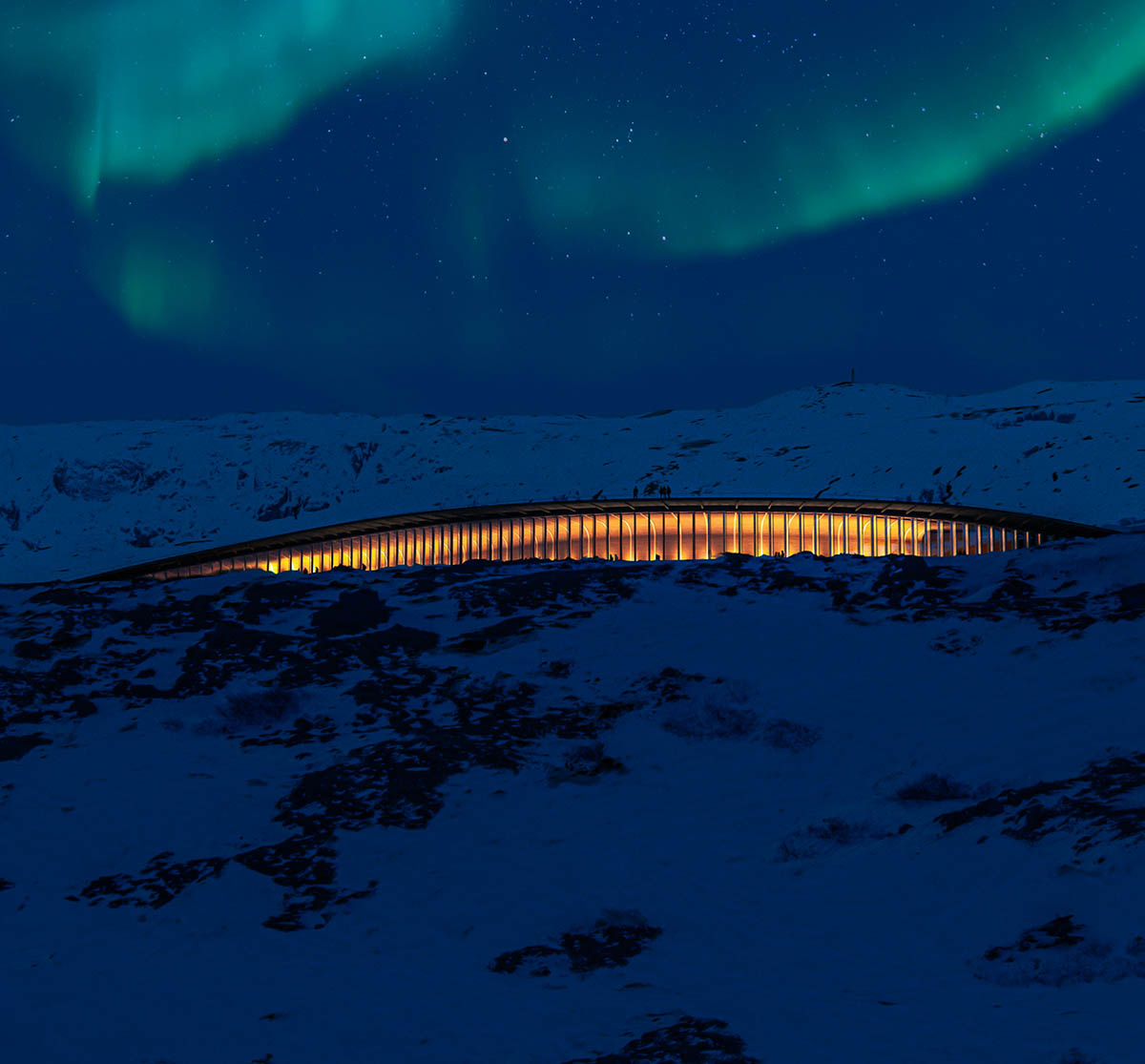
Image © MIR
"The winning proposal convinced the jury with their beautiful and poetic response to the requirements outlined in the Feasibility Study and during the March Design Week in Iqaluit," stated in a jury statement.
"Jury members felt that Mandrup heard and understood community perspectives regarding Inuit Traditional Knowledge and the healing potential for the NIHC."
"The reference to kalutoqaniq resonated with the jury, the prevailing wind causing shapes and paterns in the snowdrifts," the statement reads.
The project will be built in Iqaluit to honour the Canadian Governments commitment to the Nunavut Agreement which will be developed as "an urgent need for a territorial heritage facility."
As the studio explained, the new centre will also encourage the growth of local heritage and foster a network of cultural centres across the territory where the Inuit can reconnect with their heritage and find a stronger sense of identity and culture.
The studio benefits from the spacious land and gives it back to the building by creating a generous roof. The roof, merged with landscape, offers a new natural outdoor gathering place with unhindered views over the vast tundra.
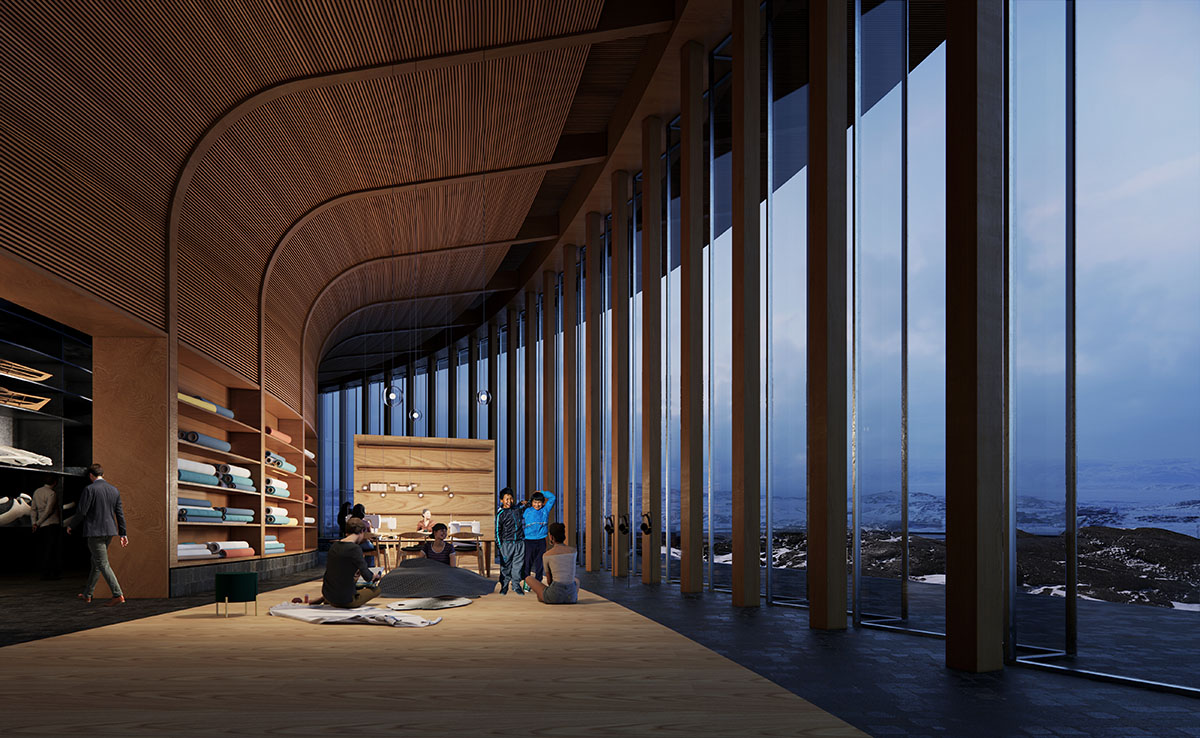
IQ Lab. Image courtesy of Dorte Mandrup
While the roof is covered in rock and turf, it dissolves the lines between the building and the terrain and allows a continuous movement across the landscape.
The building is envisioned as a shell by taking advantage of the protective rock, and the structure naturally embrace the sensitive collections and exhibits beneath.
An open slit in the hill creates a daylit space for the different activities and gatherings taking place in the centre.
"The Nunavut Inuit Heritage Centre will provide a venue for several activities and serve as a gathering place for the preservation and celebration of Inuit culture and heritage," said Dorte Mandrup.
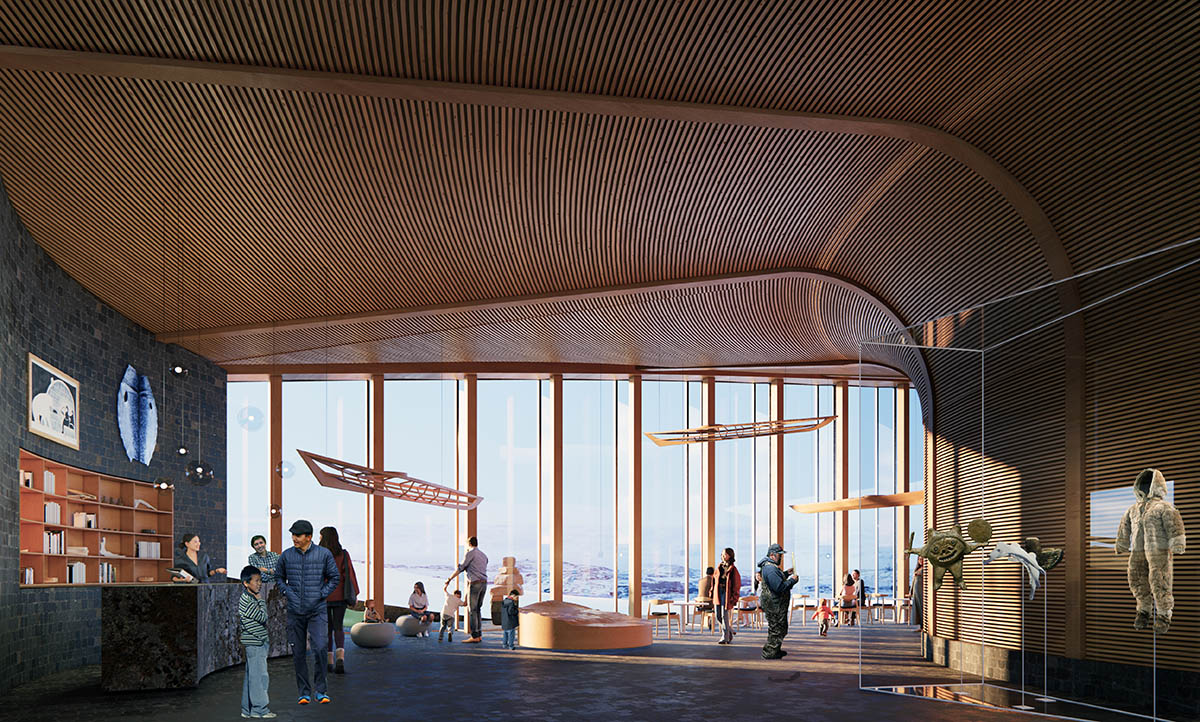
Entrance. Image courtesy of Dorte Mandrup
"We have waited many years for this opportunity and have never been this close to realizing our dream," said William Beveridge, Executive Director for the Inuit Heritage Trust (IHT).
"The need for a territorial heritage centre was first identified in the Nunavut Agreement and thirty years later we are still without a place of our own," said William Beveridge, Executive Director for the Inuit Heritage Trust (IHT).
"As a result, many items made by our ancestors are stored in southern facilities."
"With few opportunities for Inuit to engage with these items, we continue to be disconnected from this important part of our cultural heritage. But there is growing momentum for an Inuit-owned and operated facility," Beveridge added.
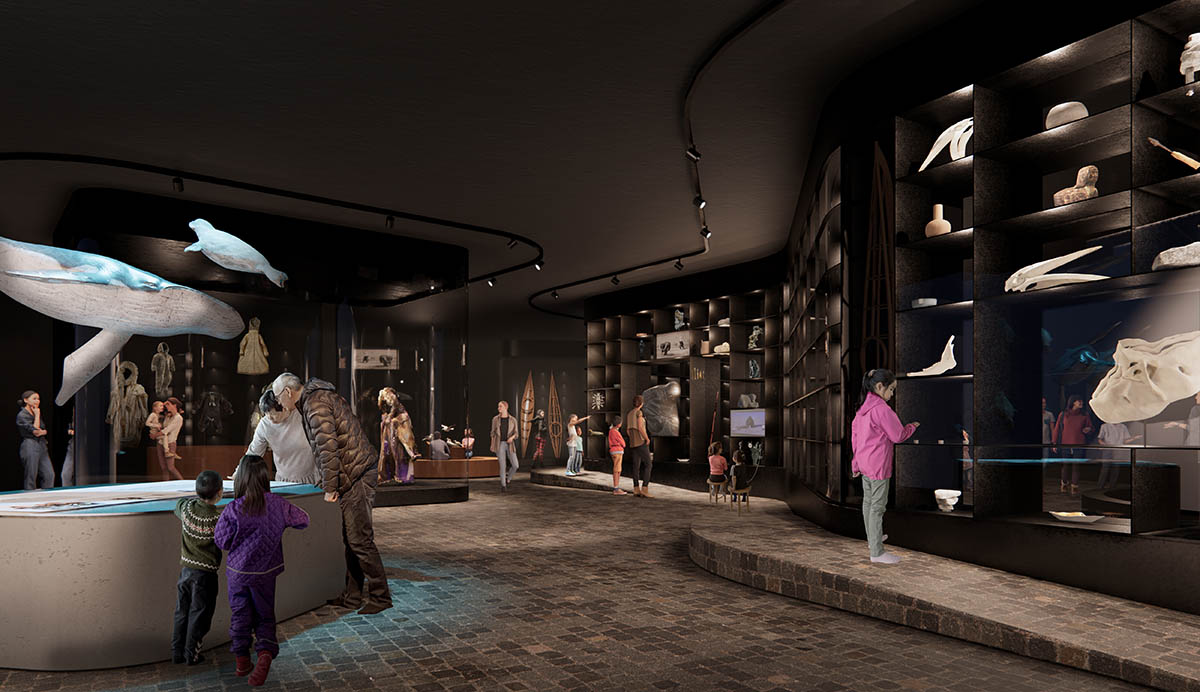
Exhibition. Image courtesy of Dorte Mandrup
Dorte Mandrup was founded in 1999 by Dorte Mandrup in Copenhagen. Dorte Mandrup completed the curvaceous Ilulissat Icefjord Centre on a rugged terrain in the UNESCO-protected area on the west coast of Greenland.
Dorte Mandrup also won an international competition to design the new Exilmuseum in Berlin, Germany.
Top image in the article © MIR, courtesy of Dorte Mandrup.
